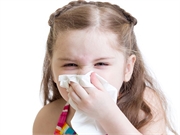
As an early flu season spreads its misery across the United States, new research shows that few child care centers require children or their adult caregivers to get a flu shot. Flu can be especially dangerous for children, who have a greater risk than adults for serious complications, hospitalization and even death, the researchers noted.… read on >





























